Article
Hanaholmen Future Forum
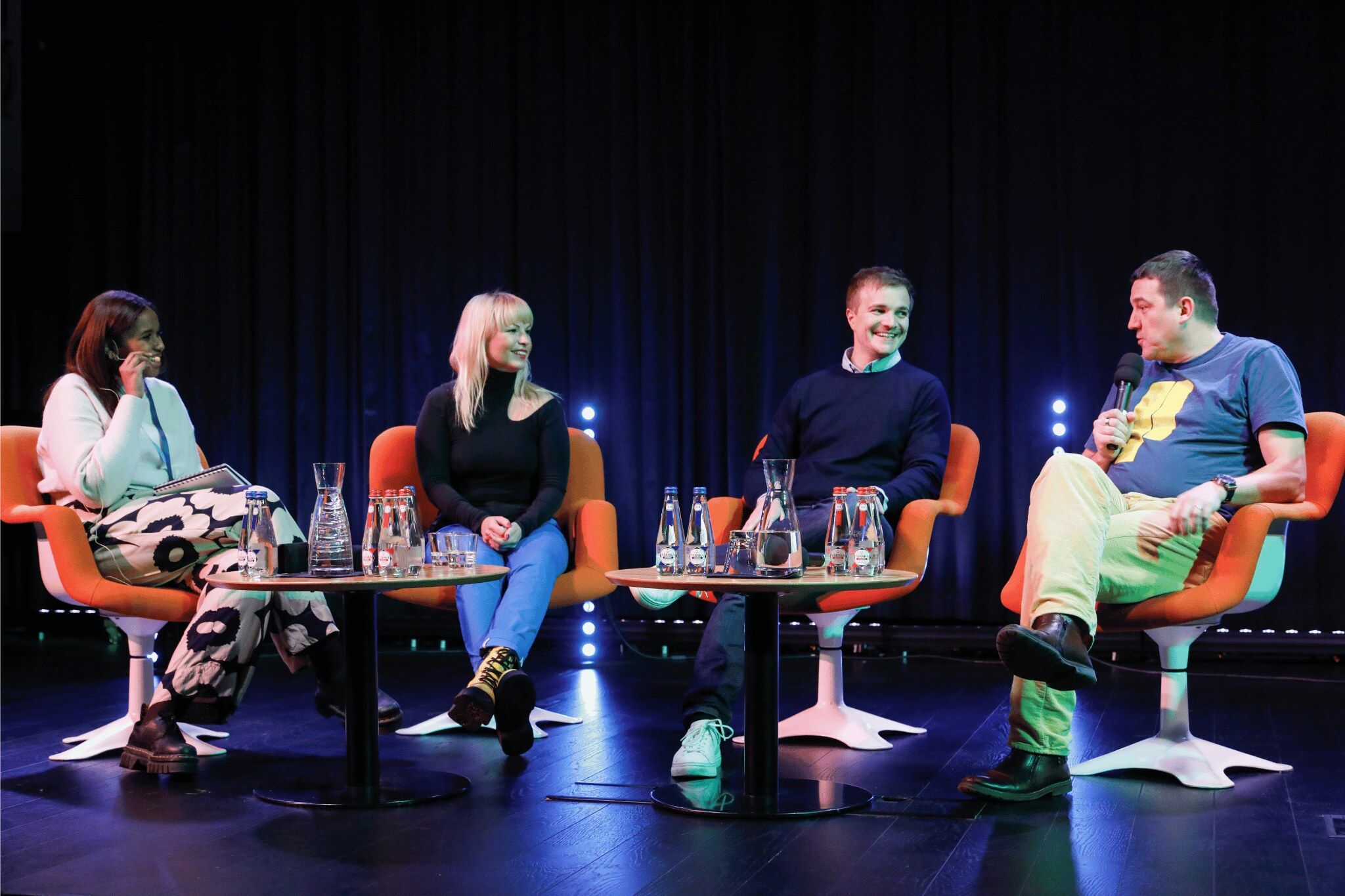
During the day, the audience listened to several speeches and panel discussions about resilience and how we, in the Nordics and Baltics, can prepare for what we don't know.
Keynote speech: Thomas Ahrenkiel, partner and head of Europe at Macro Advisory
Thomas Ahrenkiel's key message was that geopolitical fragmentation is here to stay.
– We live in a new era where politics, policies, and geopolitics are becoming more important for businesses today.
After the cold war, there was openness and efficiency – a very supportive environment for business. Now we live in a fragmented world with volatile inflation.
The regime change began with the financial crisis in 2008, followed by geopolitical tension with China, Brexit, and Covid-19.
– The open bracket came to a symbolic end with Russia's invasion of Ukraine, and we began to prioritize resilience over efficiency, Ahrenkiel said.
According to him, this has led to a push for more defense spending, investments in energy security, and building geostrategic resilience in operations and supply chains in companies.
– Fragmentation will be prominent, but there will also be darker scenarios in which globalization will be replaced by competition, rivalry, and even conflict.
Ahrenkiel mentioned a cold war scenario with two blocks forming or a scenario with different geopolitical archipelagos.
– Navigating this fragmented world is a major challenge for companies and investors. But it also presents significant opportunities for those navigating the new geopolitical realities.
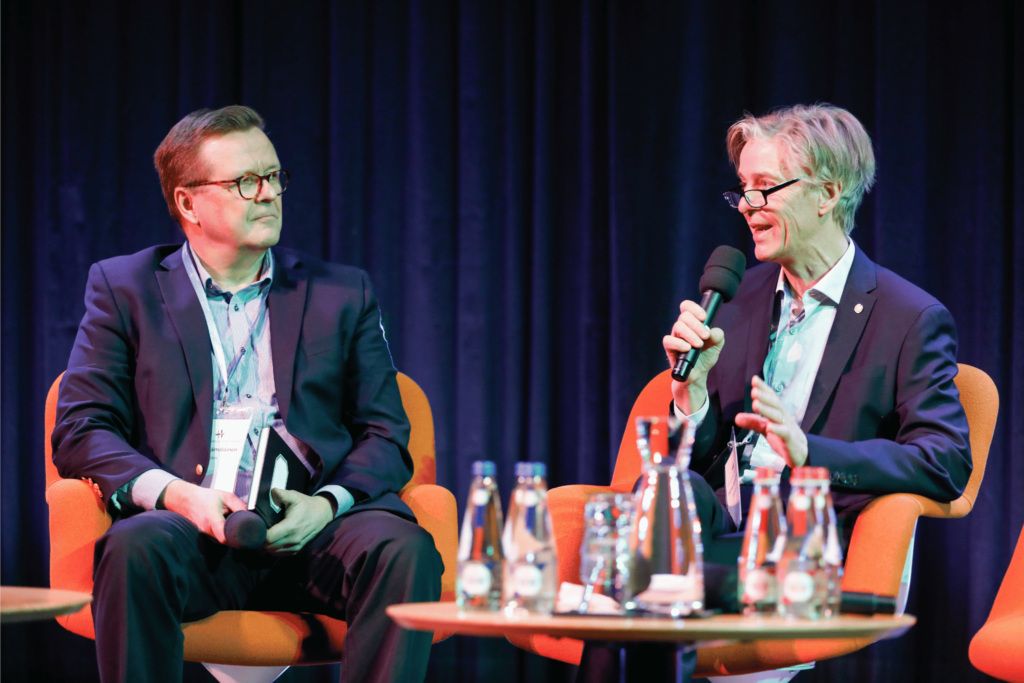
Discussion: Conceptualizing resilience
What does it mean to build a resilient business in a globalized world? Academics and business representatives discussed this question.
– The traditional way of thinking of resilience is bouncing back from disruption and crisis, but it's also an opportunity to transform one's business, Timo Hämäläinen, a leading specialist at Sitra, said.
According to him, we need to increase the diversity in our thinking and be ready for surprises.
– We need diversity in terms of people. One of the key issues of Finland as a country is a change of mindset; we need to attract and integrate and make people feel important in society, Ingmar Björkman, the rector at Hanken School of Economics, said.
– We tend to talk about re-skilling our workforce, but we also need to broaden our mindsets. If you're not thinking about diversity, you do not recognize threats, Hämäläinen said.
Kari Kulojärvi, the managing partner at McKinsey, answered whether China is a resilience risk.
– I have been involved in building China-based supply chains, and it has taken decades, so unwinding that will take years, or maybe decades.
According to Kulojärvi China Plus One, avoiding investing only in China, won't remove the risks with Nordic dependencies of the Chinese supply chain any time soon.
– Every company needs to think from day one – how do we position in the global theater when building supply chains? Ilkka Kivimäki, partner at Maki.vc, said.
The Covid-19 pandemic also taught us a lot about resilience.
– We learned how to digitalize businesses very fast. We saw an opportunity and invested heavily in content and tech. Looking back now, it was beneficial, Mari-Liis Rüütsalu, CEO at Espresso Grupp, said.
– Research shows that the companies who keep investing in their future during a crisis will come out much stronger and benefit from the actions they took for years to come, Kulojärvi said.
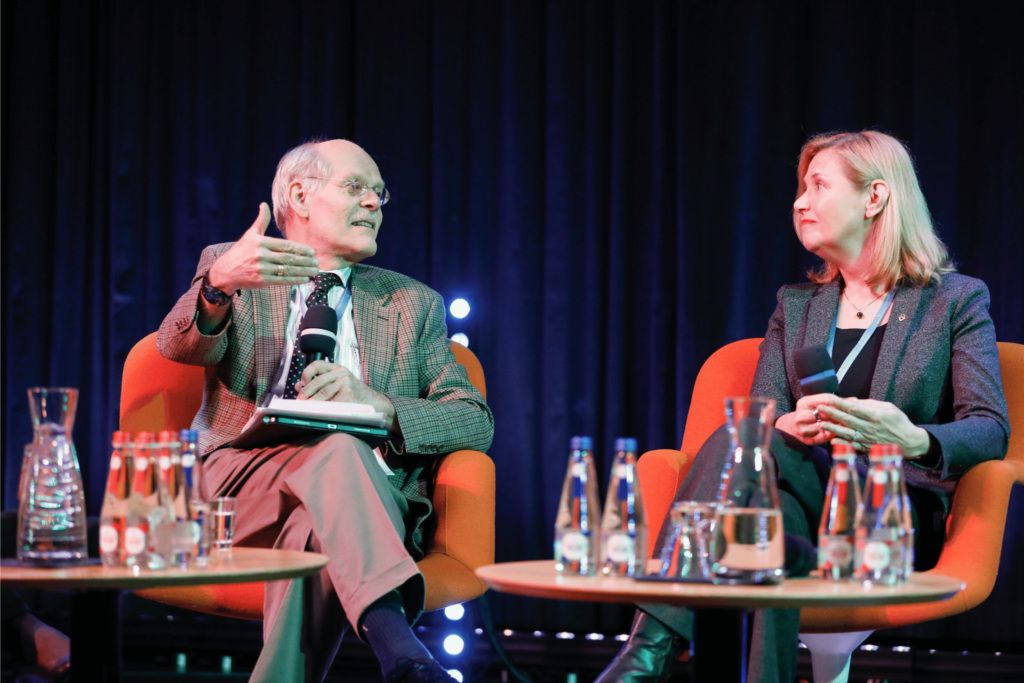
Discussion: Have central banks lost their ability to control inflation?
We experience higher inflation and rising interest rates but are the central banks only combating the symptoms of inflation? Stefan Ingves, the former governor of Sveriges Riksbank, and Leena Mörttinen, permanent state under-secretary at the Ministry of Finance, discussed this question.
Ingves said that in an uncertain world, you will always end up somewhere else than you thought.
– But the human mind likes to think we know where we are going. Resilience is the capacity to deal with the unknown.
We are currently looking at inflation from a brief time perspective, with no inflation and minimal interest rates.
– If you haven't seen inflation in ages, you'll think it is an unhealthy reaction, but it's normal. Resilience is the key issue. We need to prepare for the unexpected, but it seems difficult to do so, Mörttinen said.
– For the past 200 years, we have done things right on average, but we run things into a ditch from time to time, Ingves said.
He also said we should read about Argentina and Venezuela to know how to mess things up on a grand scale.
According to Mörttinen, something changed in the economic policies after the global financial crisis in 2008. Before that, the general idea was not to interfere with the market because the market was always right, but now markets are always wrong.
– Everything that used to be economic policy is now politics, Mörttinen said.
She also stated that inflation is a real problem that we should get under control.
– But we don't have a toolkit for fiscal policies in the same way as the central bankers have tools.
The lack of tools means it's harder to control inflation on a national level.
– What will happen with energy prices next winter? Mörttinen asked.
Ingves stated that business owners need to understand what's happening in the economy and adjust and adapt as quickly as possible.
– Don't think that the world is somehow normal. You have to do scenario analysis and ensure you're resilient enough, Mörttinen said.
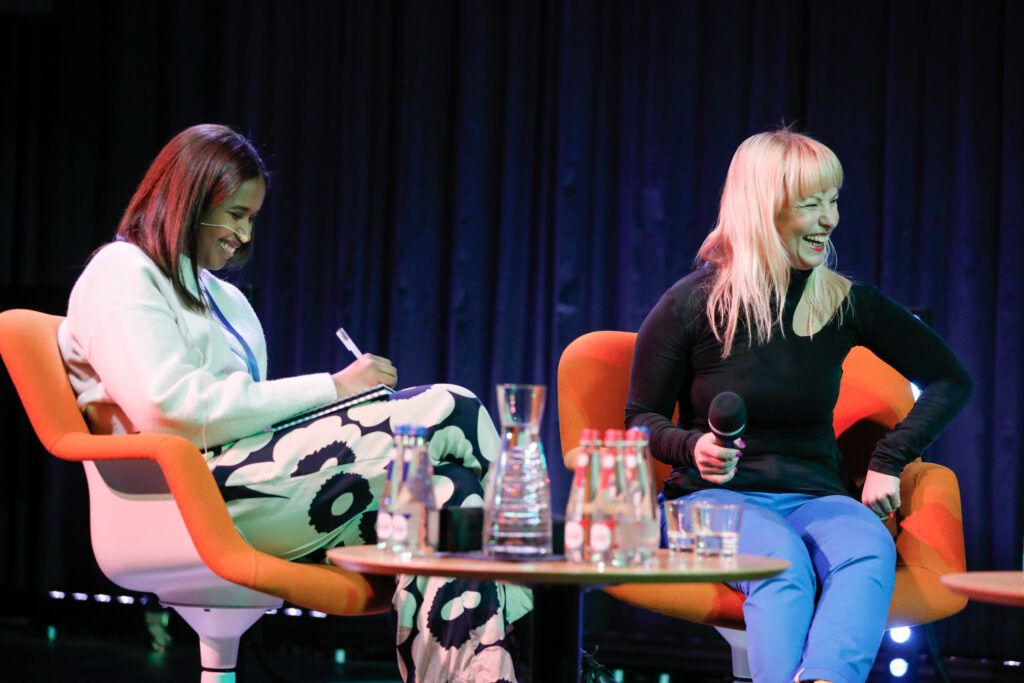
Discussion: The future of start-ups
How to build resilient companies now and in the future? Karoli Hindriks, founder at Jobbatical, started by saying that change is vital in a start-up.
– My employees have asked me if we could change a little less and a little less often. But one thing you must get used to in a start-up is change, which will be uncomfortable.
It's common to think about how you can succeed, but it's also essential to think about failure.
– The default state of a start-up is to die. For the rest, the default state is "we are alive", Sten Tamkivi, tech investor and founder of Plural, said.
Miki Kuusi, CEO at Wolt and head of DoorDash International, said that when investing in companies, he wants to know how much money they are making and how much money they have.
– How close is the imminent death? Many of the companies founded in 2020–2022 are running towards a wall, thinking there is a door that will open, but in a start-up, you always have to have death in mind, Kuusi said.
According to Tamkivi, the start-up scene has changed, making it harder for scaling companies that need more significant investments than 1–2 million euros.
– But if you want to build companies, there's no cheaper way than applying technology. In Estonia, we have 1 400 start-ups, which generate 3 percent of the GDP, Tamkivi said.
It's possible that start-ups will make an even more significant part of the GDP in the future.
– What we need to do in Helsinki and Tallinn is think about how to make smart people choose us instead of Silicon Valley to build those amazing companies. In Estonia, 25 percent of the founders and one-third of the employees are foreigners. Diversity is just not a nice thing; it actually enriches the decision quality, Hindriks said.
Mona Ismail, co-founder, and CEO at Somefrogs, moderated the discussion.
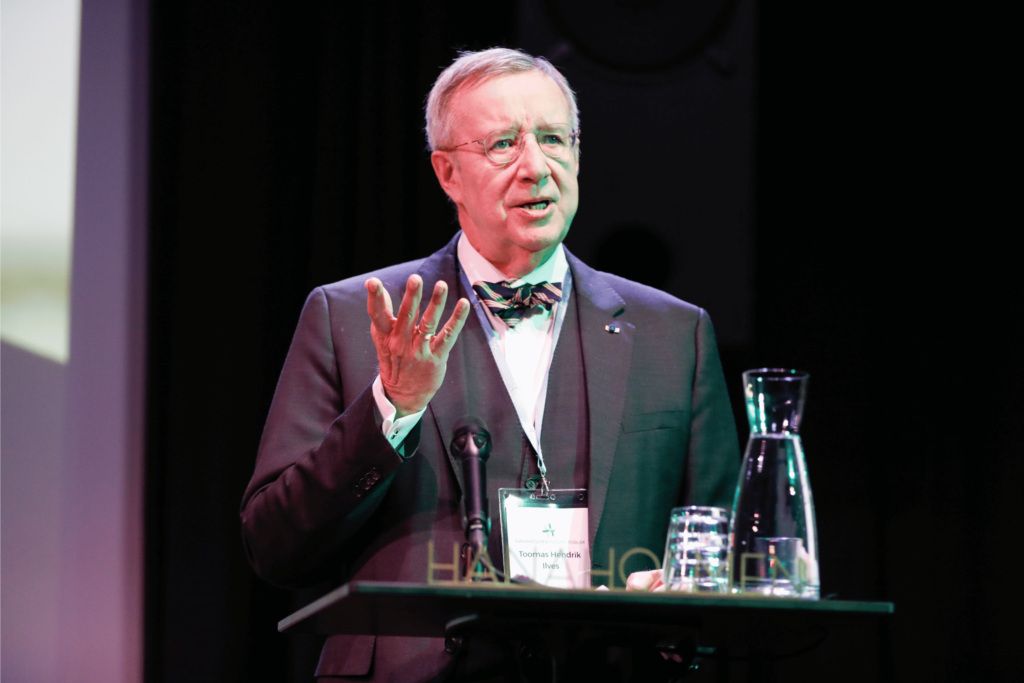
Geopolitics and technological self-sufficiency – three speeches
Future Forum 2023 ended with three speeches by Toomas Hendrik Ilves, the former president of Estonia, P.M. Nilsson, responsible for climate, environmental, urban, and rural issues at Timbro, and Aurore Belfrage, tech investor and board professional.
Ilves talked about how to harness technological capabilities without falling victim to geopolitical crossfire – and how we have to rethink how we do cyber security.
– Policymakers don't understand the threats of the new digital era. The nature of war changed dramatically with the computer, but the kinetic warfare has not disappeared, Ilves said.
He said that the Nordics and Baltics have to be the leading countries in the digital era.
– What we need to do, is that we need to take charge. You cannot innovate by becoming a protectionist, Ilves said.
Nilsson started his speech by quoting the opening line of Väinö Linnas Under the north star trilogy.
– Jussi Koskela's start-up was successful; he broke free with his own hands. Wilhelm Moberg writes a similar story in the Emigrants series. Almost all Swedes and Finns carry a family history of hard work and improvement. Succeeding is the greatest thing you can do, Nilsson said.
To some, success can seem unfair if they sense a hidden advantage for the one who succeeded.
– These are eternal questions in societies based on meritocracy. Geopolitical shifts come and go. We have no idea what will happen in ten years, but we're much safer if we have the right person in the right place.
The day ended with Belfrage's speech about how AI is redefining geopolitics.
– The map has been rewritten with AI technology. Access to data becomes a weapon arsenal – whoever controls the data controls the world, Belfrage said.